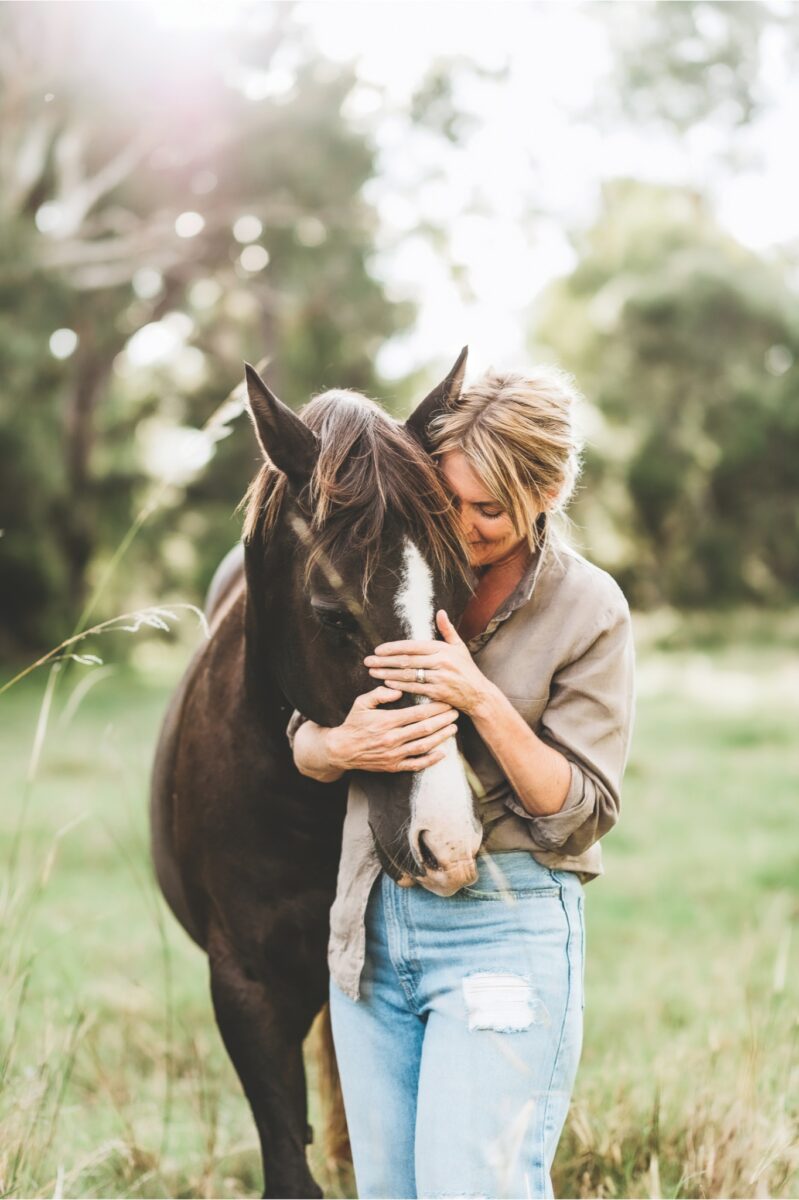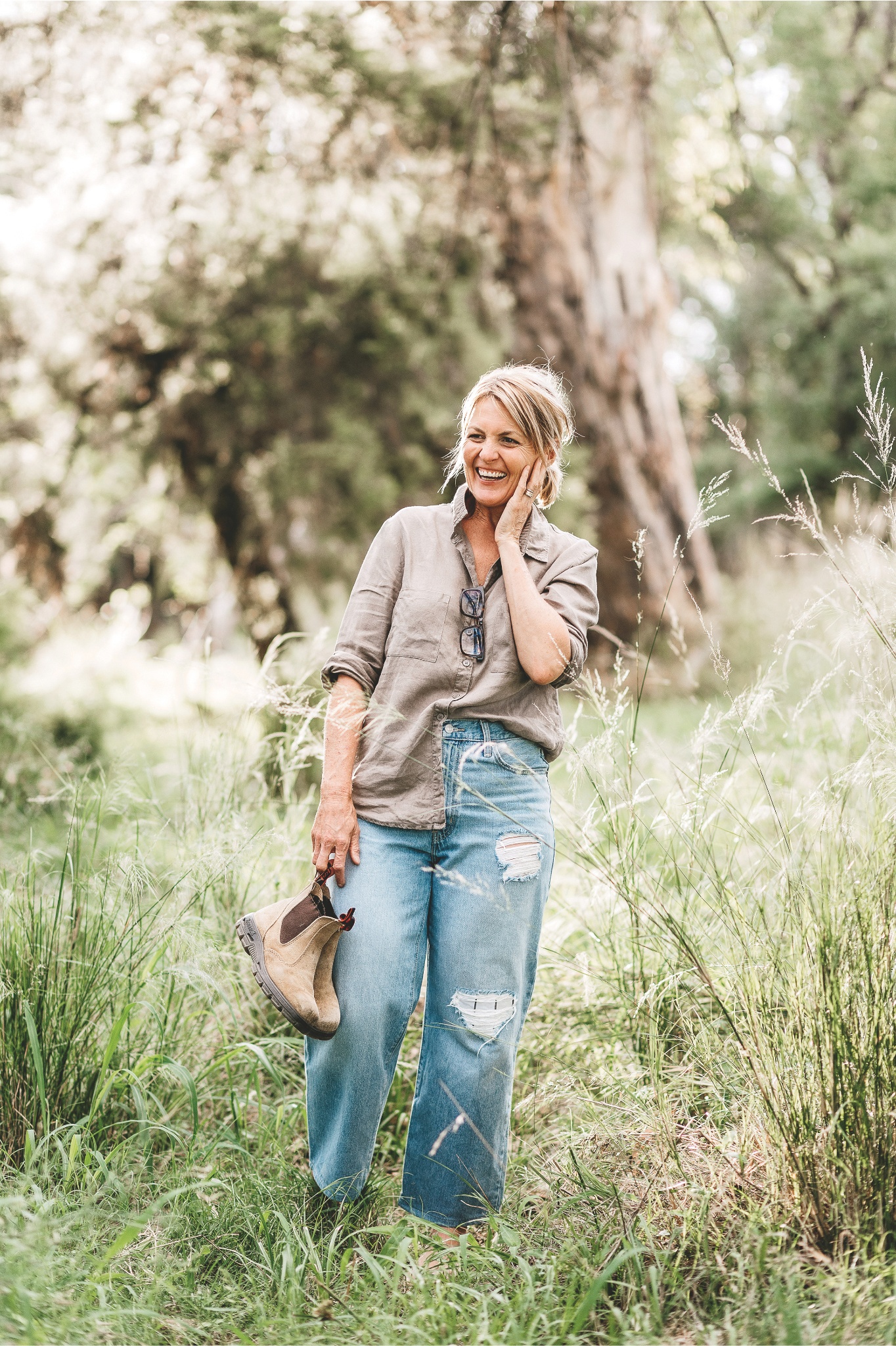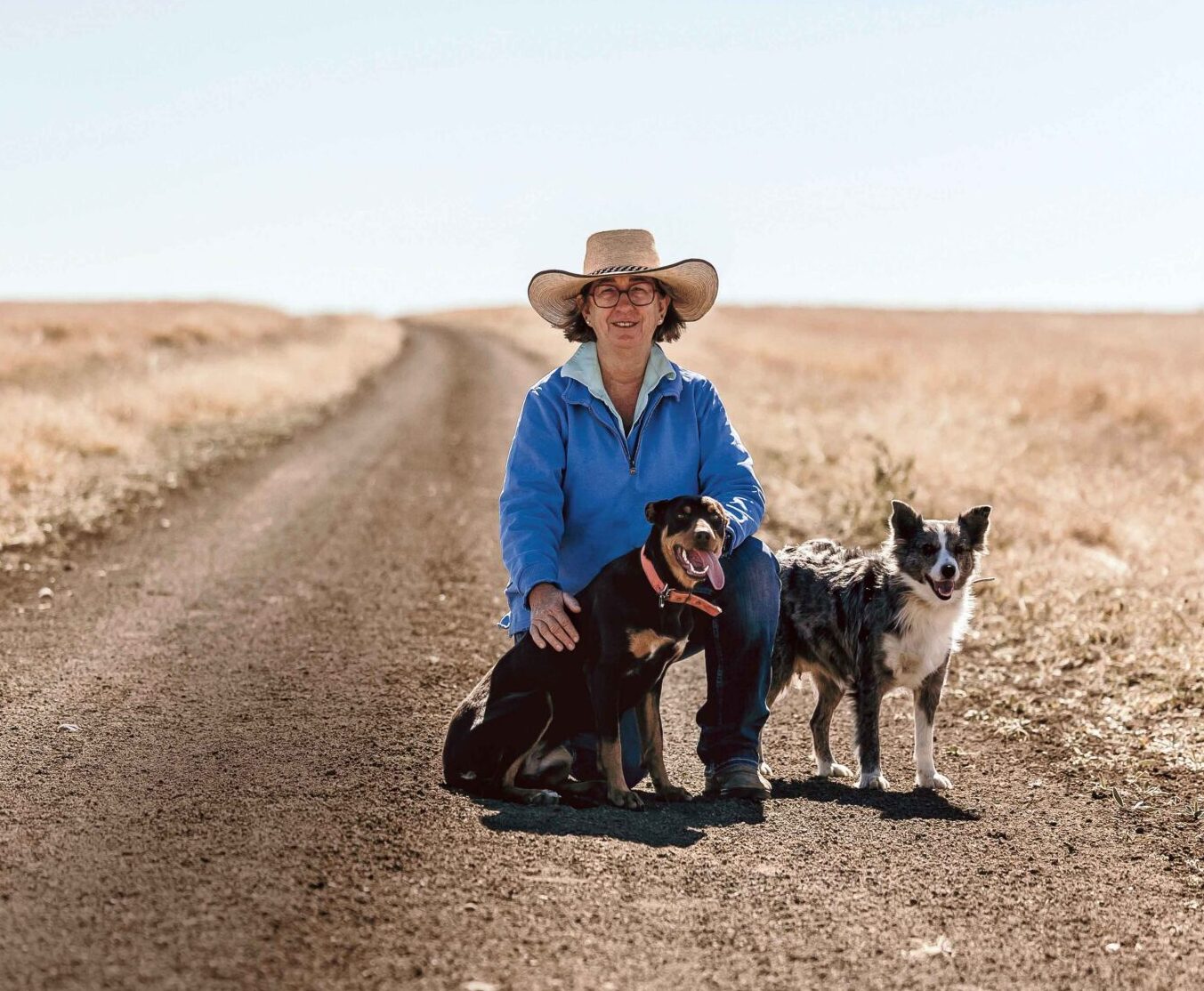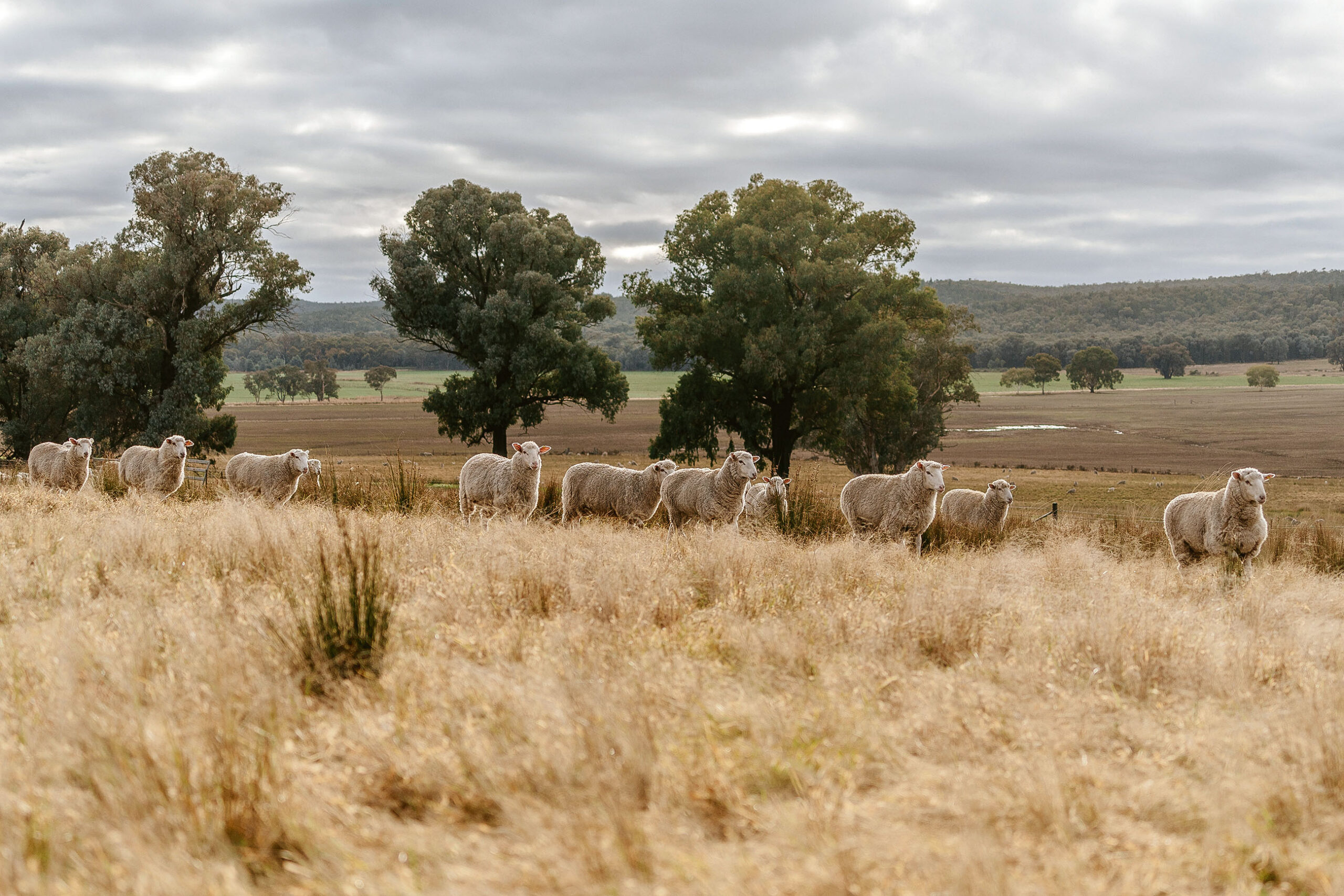Photography Pip Williams
Sign up to our mailing list for the best stories delivered to your inbox.
In this conversation with Graziher, Shanna reflects on her journey so far and what the future holds.
Words Victoria Carey Photography Pip Williams

Photography Pip Williams

Photography Pip Williams
It’s just two weeks past February 22 when I interview Shanna Whan. It’s a significant date for the Sober in the Country founder, as it was on this day nine years ago that she decided to say goodbye to alcohol forever.
It was a long time coming. This journalist and photographer describes her twenties as the “decade of disaster”; then we fast-forward to 2015 with a 40-year-old Shanna knocking herself unconscious after falling down a flight of concrete stairs. It was a wake-up call that led to her and husband Tim driving 400 kilometres to an Alcoholics Anonymous meeting in Tamworth, New South Wales, and beginning a conversation that continues to this day.
“I haven’t stopped talking since,” says the 49-year-old with a smile. After listening to interviews she has done over the years, I know that this self-confessed “dork’s” wonderfully wicked sense of humour is never too far away. Even the name Sober in the Country, a play on Sex and the City, is proof of that. She’s always laughing and joking.
I first meet Shanna in a Dubbo pub at a lunch to celebrate Rural Women’s Day. We sit next to each other, perched on stools at a long timber table, waiting for our turn behind the mic. It’s normal to feel nervous in those minutes leading up to speaking in public, but I quickly realised there was a bit more than just nerves at play here.
Shanna confides in me that things have been pretty tough for her recently. The year had started with the death of her much-loved dad, Bucky Rowlands, in January, and she was dealing with chronic fatigue. Now, the winner of the 2022 Australian of the Year Local Hero award had just received confirmation that there were complications from what she hoped would be successful surgery for restless leg syndrome that she had gone to Colorado to have done. She was devastated.
Eventually the time came for her speak. Shanna said later that she dragged herself up to the microphone. With her trademark honesty, she told the hundred or so women in the audience that she had just locked herself in the pub’s toilet to gather the strength to speak to them. A minute in, and the audience was hanging on every word. The passion and determination that drives Sober in the Country had kicked in.
“At one stage, mid-speech, when discussing aspects of my challenging year, I found I couldn’t breathe. So I stopped and put my head in my hands momentarily. When I eventually looked up, I gave what I can only describe as a ‘please forgive me’ grimace; and forgive me they did,” she wrote a few days after the lunch. “Those ladies truly saw me, and as they spontaneously burst into applause, their eyes were warm with genuine solidarity, acceptance and kindness. We shared tears, and we also shared many laughs.
“It taught me a valuable lesson: that in spite of feeling so desperately low, vulnerable and lost, it was through moments of complete candour and total vulnerability that I was — in the end — able to make one of the most profound audience connections I’ve ever made.
“I’ve never had such extraordinary feedback or connections, in almost a decade of speaking. I have screenshots of the many messages that came my way, to remind me when the next hurdles come. And come they will,” she says.
Shanna’s ability to tell her story, and to tell it well, is at the core of Sober in the Country. “I sat down at the age of 40, when I had survived against the odds, and thought ‘What am I going to do with my life?’ I wrote on a big piece of butcher’s paper: What am I good at? I’m really good at photography. I’m really good with words. I’m really good at being addicted to alcohol. And now I’m not, but I can talk about that. I’m a good speaker. It was like a cauldron of things that I was good at,” she says.
Shanna’s story begins in Zimbabwe. Born in 1974, Shanna arrived in Australia as a six-year-old after her parents decided they wanted a safer life for their young children. “We arrived at Moree in a caravan with about $200,” she recalls.
It was a far cry from the home they had left behind, where they had lived in a house surrounded by razor wire. Shanna’s mother slept with a gun under her pillow. The little blonde-haired tomboy and her older brother were shadowed by a pack of bull terriers for safety.
In Australia, her dad quickly did well in the agricultural industry and Shanna then had an idyllic childhood on a property near Collarenebri in north-western New South Wales with a menagerie of animals including a palomino called Fudge. “I grew up on the back of that horse,” she says.
The transition to boarding school in Toowoomba as an 11-year-old was difficult for this “free-ranging feral bush kid”. In hindsight, it was to sow the seeds for some dark times in the future, but much worse was to follow.
Shanna describes herself as a ‘red-flag drinker’ from the age of 18. A series of sexual assaults, while working in the ag industry on her gap year, had devastating consequences.
It led to the beginning of two decades of self-medicating with alcohol, culminating in that Boxing Day fall.
“It is a horrifyingly common thing happening behind closed doors in many farmhouses in this country. My story is not unique or special, and nor am I: I’m just choosing to speak about it,” she tells me, pushing her chair back from the desk.
The sound of a door opening in the distance lightens the mood. A tan-and-white terrier bursts into the room and leaps onto her lap. Biscuit, the Jack Russell, has arrived. The energetic little dog has proved to be a welcome distraction after the recent death of the Whans’ much-loved blue heeler Fleabag.
“When I brought her home, I had all the nieces and nephews with me, and Tim walked in. There was this awkward silence. And he’s like, ‘What’s going on here?’ He complained, ‘Oh, bloody hell, Shan. What is this?’ Anyway, he has now lost his mind over this dog,” she says.
Change is on the horizon. “We’ve bought a little mountain block, which is another 10 minutes up the road from here. So we’re just shifting camp to a small farm with a house that requires a bit of love.”
But for now, a little converted timber church in Maules Creek, next door to her in-laws, is home. “I remember a few days into being here and I reckon I exhaled for the first time. I love it here. We walk down the aisle to have breakfast every morning,” she jokes. See, there it is again: you just can’t keep that irrepressible funny girl down for long.
For more information or to make a donation, Sober in the Country.
Subscribe to Graziher and never miss an issue of your favourite magazine! Already a subscriber? You can gift a subscription to someone special in your life.
To hear more extraordinary stories about women living in rural and regional Australia, listen to our podcast Life on the Land on Apple Podcasts, Spotify and all major podcast platforms.

In her youth, she struggled to find her place. Now, Louise Martin knows exactly where she needs to be: in Tambo, Queensland, making sure rural children get the education they deserve.

Writer and photographer Alexandra MacAlpine finds ways to hold onto moments of peace amid the busyness of station life.